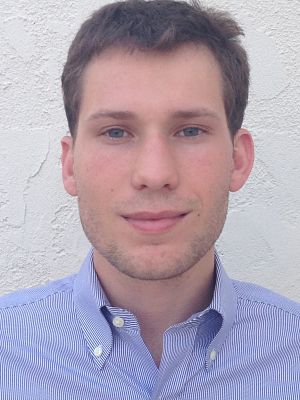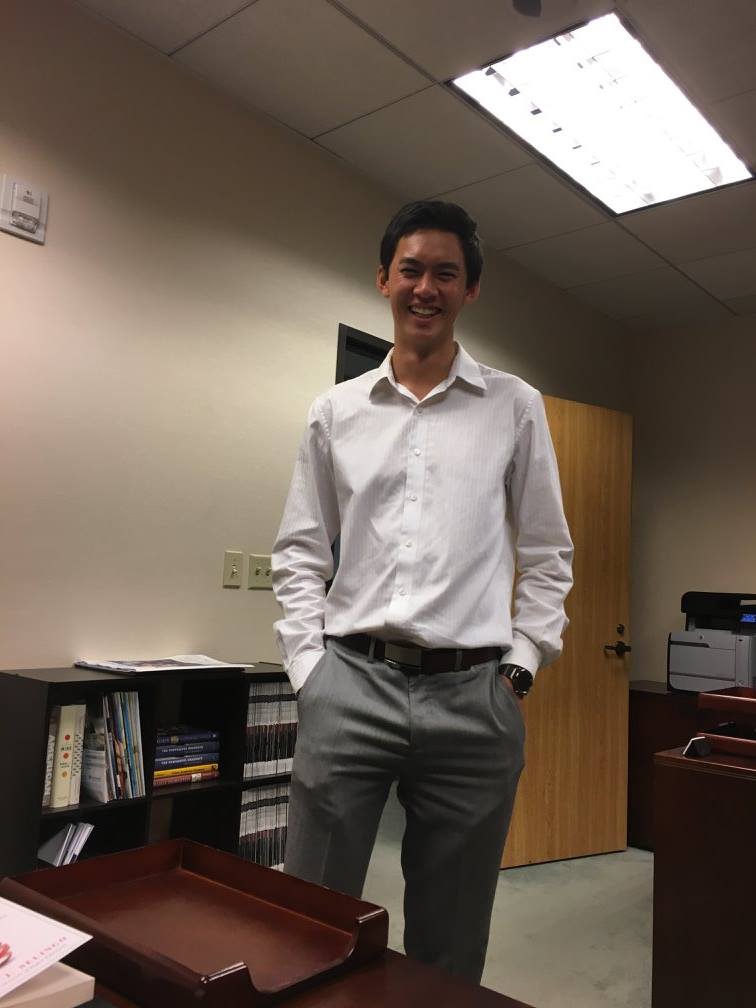Economics Alumni Spotlight
Kevin Hoffman
 Major/ Minor: History, Economics
Major/ Minor: History, Economics
Graduation Year: 2016
Company/Organization: Yale University
Position: PhD Student (History)
How did your economics degree at Pepperdine prepare you for your career after Pepperdine?
I have found that my economics degree helped me to distinguish myself as a historian. It has provided me an insight into the subject which my peers do no possess. Furthermore, it has helped with statistical work on my master's thesis.
What do you wish you would have known before you graduated?
It would have been better if there was a longer period of time on stats and econometrics to make it a two-semester course.
Any general tips for current economics students?
Try to get a broad array of professors across the department. While the theory is key for your personal development, most people want to be able to see a facility with the quantitative sides of economics.
Lionel Ong
 Major/ Minor: Economics, Political Science
Major/ Minor: Economics, Political Science
Graduation Year: 2017
Company/Organization: AF Power
Position: Development Manager
How did your economics degree at Pepperdine prepare you for your career after Pepperdine?
Difficult to say. My job is really one of a kind. Also, we work in developing countries where the people I negotiate with don't always think as rationally as classical economists assume.
What do you wish you would have known before you graduated?
How much connections count in getting you a job, or else you really have to fit every criterion an employer expects of the job.
Any general tips for current economics students?
Make sure you do an internship in a field that interests you, so you make connections there.
Nicholas Schifano
 Major/ Minor: Economics, Religion
Major/ Minor: Economics, Religion
Graduation Year: 2017
Company/Organization: Teach for America
Position: High School Mathematics Teacher
How did your economics degree at Pepperdine prepare you for your career after Pepperdine?
My economics degree at Pepperdine helped prepare me for my future career after by teaching me how to think like an economist. People who study and understand economics have a different approach to solving problems. Even in my role as a mathematics teacher, I use my economics degree to answer questions like: Why don't my students complete their homework? How do I incentivize students to complete their homework? What is the most efficient use of instructional time? How can we better allocate our resources as a school? It sounds like a stretch, but it really isn't? Economists are problem solvers and teachers need to be as well.
What do you wish you would have known before you graduated?
I wish I would have taken more mathematics classes and maybe even picked up a major or minor in it. Clearly, I am a little biased given that this is the subject I now teach, but these courses would greatly add to the value of your degree. I am convinced that if you can do high level math, you will always have a job. Math is such a unique skill to have that it can set you apart in a job market. While you are required to take calculus, statistics, and econometrics as part of the major, I would suggest adding to that additional courses in calculus and statistics. You would be surprised how rusty your mathematics gets after four years of college.
Any general tips for current economics students?
Take advantage of the fact that the economics major does not have a high volume of course requirements. Do not waste your time taking 12-unit semesters. Take additional courses that interest you, add a second minor or second major. Other majors have so many course requirements that you don't have the luxury to do that. Take advantage of this opportunity because it is one of the great bonuses of the economics major. Go to the course catalog and look at courses that are not required and take Introduction to Something Interesting. You never know what will come of it.
Scot Bommarito
 Major/ Minor: Economics/Hispanic Studies, Applied Mathematics
Major/ Minor: Economics/Hispanic Studies, Applied Mathematics
Graduation Year: 2018
Company/Organization: The London School of Economics and Political Science
Position: Graduate Student
How did your economics degree at Pepperdine prepare you for your career after Pepperdine?
Pepperdine's economic degree gave me a solid foundational understanding of many different areas of economic theory. The class sequence starts by building a working knowledge of the mechanics of economics then moves on to a deeper analysis of how economic theory manifests itself in the world. Students are encouraged to consider differing perspectives and to ask thoughtful, probing questions as they consider the complexities of economic theory. The class sequence truly gives serious students an excellent base from which to proceed to graduate school or to enter the professional world.
However, even more valuable than the classes are the relationships students form with their professors in the economics division. Professors are always available to meet after class or during office hours. Students can review for upcoming exams or assignments, ask more detailed questions about class readings or lectures, get advice on future class enrollment, or even work as professors' research assistants. These interactions form the core of what makes Pepperdine's economics degree valuable and what offers students the best opportunity to prepare themselves for their work after Pepperdine.
What do you wish you would have known before you graduated?
I wish I would have realized how broadly applicable everything I was learning is in day-to-day life. Simple conversations or comments or billboards or advertisements are all loaded with economic underpinnings. The material you study in class is literally relevant to everything you see and do outside of class. If you take the time to think through it, you begin to see that economics really does permeate all human interactions. Granted, your friends don't always appreciate you verbalizing your cost-benefit analysis of options for Friday night activities, nor are they terrifically pleased when you start quantifying everyone's opportunity costs or hypothesizing various weekend optimization plans, but you get the idea. Economics is all around you. Try to see the value in that as you study for your introductory macro exam.
Any general tips for current economics students?
Talk with your professors outside of class, and do research with them! I already alluded to both of these tips, but they certainly merit being repeated. The experience and knowledge you gain from working more directly with your professors is truly invaluable. Pepperdine offers students so many different resources to do research (not the least of which includes scholarships), but so few students seem to take advantage of those resources. Doing research is an excellent way to build a relationship with your professor (which leads to strong letters of recommendation, provided you work hard), to gain practical experience in the field, and to boost your resume/graduate school application. Even if you choose not to do research, swing by your professors' office hours periodically to talk. They are happy to chat with students and help you with anything you want to discuss. Plus they get bored in there sometimes, so drop in!